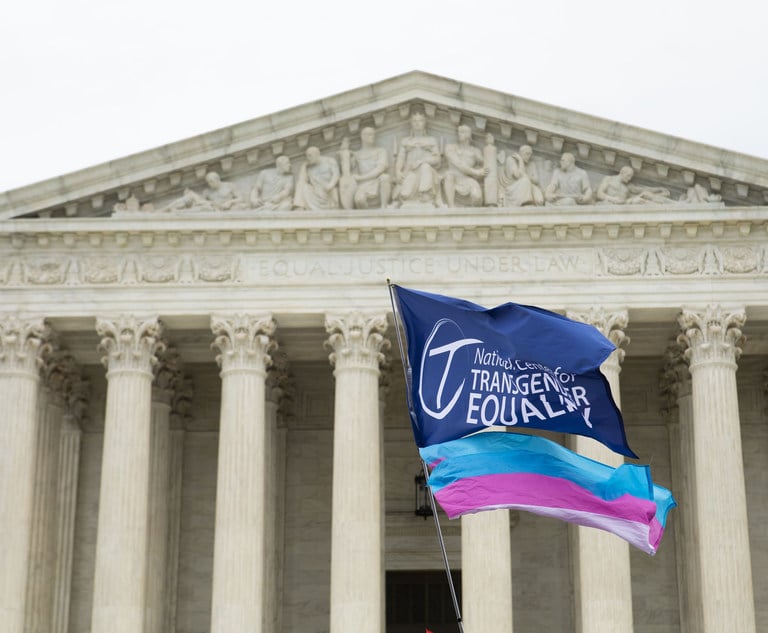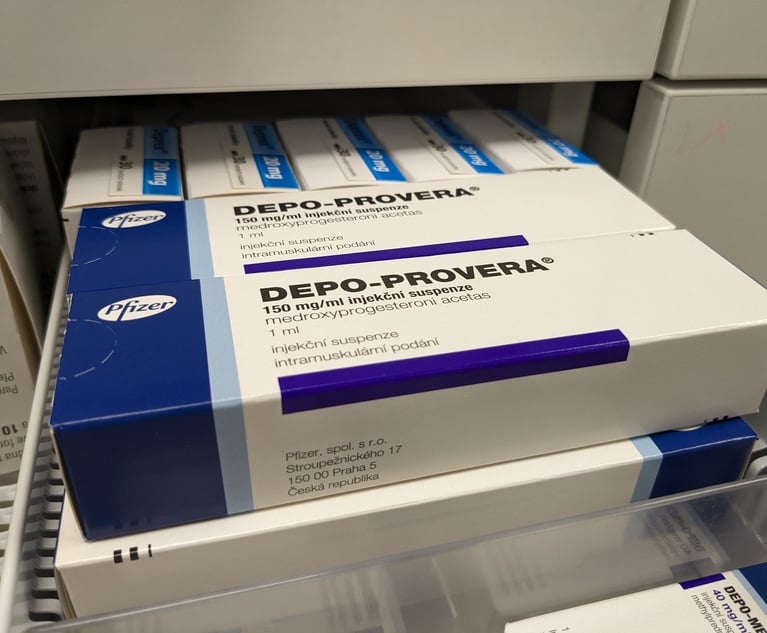6 Things to Think About as Curtain Raises on FTC Qualcomm Antitrust Trial
The stakes are incredibly high as the Federal Trade Commission launches its case Friday, the first of three scheduled trials this year over the chip giant's licensing practices.
January 03, 2019 at 10:22 PM
6 minute read
 Photo: Akshdeep Kaur Raked/Shutterstock.com
Photo: Akshdeep Kaur Raked/Shutterstock.com
Two years after Apple Inc. and the Federal Trade Commission brought antitrust suits against Qualcomm Inc., the first case is going to trial. On Friday the FTC marches into U.S. District Judge Lucy Koh's courtroom, accusing Qualcomm of using monopoly power over cellphone chip supply and its massive patent portfolio to extract inflated royalties on technology essential to connecting mobile devices.
The FTC is demanding that Qualcomm license standard-essential patents to chipmaking rivals on fair, reasonable and nondiscriminatory (FRAND) terms, and that it stop threatening to withhold chips from smartphone makers who balk at its licensing terms. The agency argues that the company's “no license, no chips” policy coerces handset makers into paying more for licenses than they would based solely on the threat of a patent infringement suit. Opening statements are scheduled to begin Friday followed by a 10-day bench trial.
Apple and five of its contract manufacturers, meanwhile, are demanding tens of billions in damages in a separate action scheduled for a jury trial in April in San Diego, while Qualcomm is seeking similarly vast sums in unpaid royalties. Koh also has certified a class of consumers seeking $5 billion over higher prices based on Qualcomm's alleged anti-competitive behavior. That case is scheduled for trial in June.
➤➤ Get the best in IP news and commentary with Scott Graham's Skilled in the Art. Sign up here.
Qualcomm is represented by a team of lawyers from Cravath, Swaine & Moore; Quinn Emanuel Urquhart & Sullivan; Morgan, Lewis & Bockius; Keker Van Nest & Peters; Jones Day and others. Backing Apple is Fish & Richardson and Boies Schiller Flexner, while Gibson, Dunn & Crutcher represents contract manufacturers Compal Electronics Inc., FIH Mobile Ltd., Hon Hai Precision Industry Co. Ltd., Pegatron Corp. and Wistron Corp.
Susman Godfrey and Cotchett, Pitre & McCarthy are co-lead counsel for the consumer class. FTC senior trial counsel Jennifer Milici heads up the government's team.
Here are six questions that come to mind as the first trial gets underway.
➤ Wasn't this litigation supposed to be settled already? Last fall the FTC and Qualcomm asked Koh to delay a summary judgment ruling because they were nearing a settlement, but the judge went forward with the ruling. In late November, Qualcomm CEO Steve Mollenkopf told CNBC that he believed Qualcomm and Apple were “on the doorstep of finding a resolution” by the end of 2018 or the first half of 2019. Qualcomm general counsel Donald Rosenberg later told Bloomberg that Mollenkopf meant resolved either through settlement or court proceedings all over the world. “We believe the basis of the FTC case, like several other cases, is unfounded, and we think we can prove that,” Rosenberg said.
➤ What does the government want to get out of the case? Not much, really, just an injunction requiring Qualcomm to end its “no license, no chips” policy; that it license its standard-essential patents to chipmaking rivals on FRAND terms; and that it renegotiate potentially hundreds of chip licenses with existing customers or submit them to arbitration or judicial dispute resolution. Qualcomm says the FTC is trying to enjoin “legitimate, pro-competitive business practices that facilitated the growth of a phenomenally successful industry that bears all the hallmarks of healthy and vigorous competition.”
➤ Does the FTC have a strong case? So far it's been winning the big pretrial battles. Koh ruled on summary judgment that Qualcomm's FRAND commitment requires it to license competitors. Last month, the judge refused to allow evidence of market conditions after the March 2018 close of fact discovery (Qualcomm argues companies such as Intel and Huawei have been gaining market share since then). The FTC's challenge now is to prove that Qualcomm's licensing practices actually changed the behavior of market participants, Goodwin Procter counsel Monte Cooper said. The commission will have to show that handset makers “abandoned concerns over royalty rates and instead took the deal they were handed,” said Cooper, who's been following the case as a veteran of SEP litigation and as counsel to Sequans Communications, one of numerous third parties in the case.
➤ What are Qualcomm's strongest defenses? Qualcomm argues that whatever else it may entail, a FRAND commitment doesn't give rise to an antitrust duty to deal with competing chipmakers. The company notes that the head of DOJ's antitrust division has been saying as much recently. More broadly, Qualcomm argues that there's no problem with the modem chip market that needs to be solved. “Prices keep falling. Product quality keeps improving. Consumer choices for cellular devices keep broadening. Data speeds keep increasing,” Qualcomm argues in a trial brief signed by Keker Van Nest partner Robert Van Nest. And there's no evidence that Qualcomm's side deals with Apple hurt anyone, “least of all Apple (which made billions from the deals) or Intel (which now supplies 100 percent of modems for Apple's latest iPhones and iPads),” he writes.
➤ How big a factor is Huawei in this drama? From Qualcomm's perspective, the bigger the better. “In its zeal to hobble a quintessential American technology company,” Van Nest writes, “the FTC risks providing an opening for Huawei to dominate 5G technology, and stifling innovation just when it's needed most.” Will that argument have extra resonance, given events of the past month? Goodwin's Cooper doesn't think so. “I think Judge Koh is going to tune out any noise from outside the courtroom,” Cooper said. “She's shown she's good at that.”
➤ What impact could this trial have on the San Diego case and the consumer class action? This might be the most intriguing question of all. “There are a number of directly overlapping issues involving Qualcomm's conduct,” says Gibson Dunn partner Theodore Boutrous. He represents the contract manufacturers, who are seeking $27 billion in the San Diego trial. If Qualcomm loses on those issues in the first round, “it's going to be bound by negative findings in all these cases, and that's not a pretty picture for them,” Boutrous says. Timing is a question though. Judges often need months, even a year, to write up detailed findings of fact and conclusions of law following a complex bench trial. Goodwin's Cooper notes that Koh has been processing complex orders in the case “on a fairly rapid basis.” So it's conceivable something could come by April. If it doesn't, he says, there's always a possibility the San Diego trial could be continued.
This content has been archived. It is available through our partners, LexisNexis® and Bloomberg Law.
To view this content, please continue to their sites.
Not a Lexis Subscriber?
Subscribe Now
Not a Bloomberg Law Subscriber?
Subscribe Now
NOT FOR REPRINT
© 2024 ALM Global, LLC, All Rights Reserved. Request academic re-use from www.copyright.com. All other uses, submit a request to [email protected]. For more information visit Asset & Logo Licensing.
You Might Like
View All
New Class Action Points to Fears Over Privacy, Abortions and Fertility

Deception or Coercion? California Supreme Court Grants Review in Jailhouse Confession Case
5 minute read
Court rejects request to sideline San Jose State volleyball player on grounds she’s transgender
4 minute readTrending Stories
Who Got The Work
Michael G. Bongiorno, Andrew Scott Dulberg and Elizabeth E. Driscoll from Wilmer Cutler Pickering Hale and Dorr have stepped in to represent Symbotic Inc., an A.I.-enabled technology platform that focuses on increasing supply chain efficiency, and other defendants in a pending shareholder derivative lawsuit. The case, filed Oct. 2 in Massachusetts District Court by the Brown Law Firm on behalf of Stephen Austen, accuses certain officers and directors of misleading investors in regard to Symbotic's potential for margin growth by failing to disclose that the company was not equipped to timely deploy its systems or manage expenses through project delays. The case, assigned to U.S. District Judge Nathaniel M. Gorton, is 1:24-cv-12522, Austen v. Cohen et al.
Who Got The Work
Edmund Polubinski and Marie Killmond of Davis Polk & Wardwell have entered appearances for data platform software development company MongoDB and other defendants in a pending shareholder derivative lawsuit. The action, filed Oct. 7 in New York Southern District Court by the Brown Law Firm, accuses the company's directors and/or officers of falsely expressing confidence in the company’s restructuring of its sales incentive plan and downplaying the severity of decreases in its upfront commitments. The case is 1:24-cv-07594, Roy v. Ittycheria et al.
Who Got The Work
Amy O. Bruchs and Kurt F. Ellison of Michael Best & Friedrich have entered appearances for Epic Systems Corp. in a pending employment discrimination lawsuit. The suit was filed Sept. 7 in Wisconsin Western District Court by Levine Eisberner LLC and Siri & Glimstad on behalf of a project manager who claims that he was wrongfully terminated after applying for a religious exemption to the defendant's COVID-19 vaccine mandate. The case, assigned to U.S. Magistrate Judge Anita Marie Boor, is 3:24-cv-00630, Secker, Nathan v. Epic Systems Corporation.
Who Got The Work
David X. Sullivan, Thomas J. Finn and Gregory A. Hall from McCarter & English have entered appearances for Sunrun Installation Services in a pending civil rights lawsuit. The complaint was filed Sept. 4 in Connecticut District Court by attorney Robert M. Berke on behalf of former employee George Edward Steins, who was arrested and charged with employing an unregistered home improvement salesperson. The complaint alleges that had Sunrun informed the Connecticut Department of Consumer Protection that the plaintiff's employment had ended in 2017 and that he no longer held Sunrun's home improvement contractor license, he would not have been hit with charges, which were dismissed in May 2024. The case, assigned to U.S. District Judge Jeffrey A. Meyer, is 3:24-cv-01423, Steins v. Sunrun, Inc. et al.
Who Got The Work
Greenberg Traurig shareholder Joshua L. Raskin has entered an appearance for boohoo.com UK Ltd. in a pending patent infringement lawsuit. The suit, filed Sept. 3 in Texas Eastern District Court by Rozier Hardt McDonough on behalf of Alto Dynamics, asserts five patents related to an online shopping platform. The case, assigned to U.S. District Judge Rodney Gilstrap, is 2:24-cv-00719, Alto Dynamics, LLC v. boohoo.com UK Limited.
Featured Firms
Law Offices of Gary Martin Hays & Associates, P.C.
(470) 294-1674
Law Offices of Mark E. Salomone
(857) 444-6468
Smith & Hassler
(713) 739-1250







